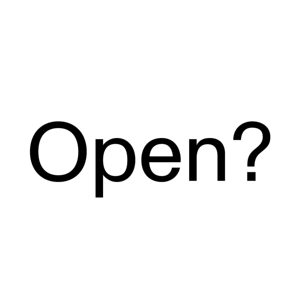Say “Nature” One More Time
The concept Nature has obviously not served us well. If it had, we wouldn’t be here. Here, meaning planet Earth at this moment, the moment of global warming. If so-called Nature and its balance and wisdom had been something that really functioned well as an idea, there would have been no way we would’ve burned all those fossil fuels and endangered all life on Earth.
But Nature is a badly malfunctioning concept. You can tell because it can mean anything. Nature can mean everything. Nature can mean some things. For example, some sexual acts are defined as natural, others as unnatural. But if Nature is everything, there can be no “unnatural.” If, however, this is true, then Nature has no teeth. There is nothing to bite if everything is your own mouth.
It would be much better to drop the idea of Nature, once and for all. I always capitalize it, because I think it is important to show what an artificial construct Nature is. It’s not trees and dolphins and coral. Nature is a human idea, made by humans for the sake of humans, and it doesn’t work at all.
Who wants to leave the comfort of their human home anyway. As Oscar Wilde said, nature is ugly and damp and crawling with horrible insects.
Instead, let’s talk about what is really true: the biosphere. We live in a biosphere. We are part of the biosphere. The biosphere is a spatiotemporal scale or two above the scale of human society. That means that when something from the biosphere impinges on the human world, the way the human world is structured defines how that impingement is mediated. Take coronavirus. Of course it affects poor people, those suffering the afflictions of racism, and so on, much worse—that’s because everything affects them worse. We should stop thinking of these entities as outside of society. Just because they come from the nonhuman world, from a biosphere that’s very large, doesn’t mean that how we relate to them is totally Natural. We need to get over this prejudice, very very fast.
In America there is the insurance concept of the “act of God.” This is exactly the toxic concept of Nature, translated into legal language. In capitalist economic theory, there is the concept of “externals”: water, wind, pollution… but nothing is external. Everything we touch, everything that touches us, takes on an anthropomorphic tint. The wind blows our house down. Coronavirus kills our grandmother. A lightning strike takes out an aircraft.
The biosphere is made up of symbiotic relationships. Some of these relationships are very tight, like that of the energy-producing organelles in animal and plant cells. Plants are green because blue-green bacteria were enveloped by single-celled organisms and didn’t kill them. Instead, they became hard wired and started to produce energy via photosynthesis. This is endosymbiosis. Some symbiotic relationships are looser. There is a tree outside my window that provides shade for my eyes as I write on my laptop.
The phenomenology, the “feel” as they say on Facebook, of symbiosis is, “Was I just poisoned?” Imagine a single-celled organism floating through an ocean. Gulp! Oh dear, did I just swallow something that will kill me? You can’t answer yes or no… yet. This uneasy, not-yet quality is basic to coexisting. Paranoia and uncertainty are not things to be deleted, but part of the basis of how we relate… unless we want to create a fascism that acts like it has solid walls.
Nothing has solid walls.
Timothy Morton is Rita Shea Guffey Chair in English at Rice University. He has collaborated with Björk, Laurie Anderson, Jennifer Walshe, Hrafnhildur Arnadottir, Sabrina Scott, Adam McKay, Jeff Bridges, Justin Guariglia, Olafur Eliasson, and Pharrell Williams. Morton co-wrote and appears in Living in the Future’s Past, a 2018 film about global warming with Jeff Bridges. He is the author of the libretto for the opera Time Time Time by Jennifer Walshe. His books include Being Ecological, Humankind, Dark Ecology, Nothing: Three Inquiries in Buddhism, and Hyperobjects.


